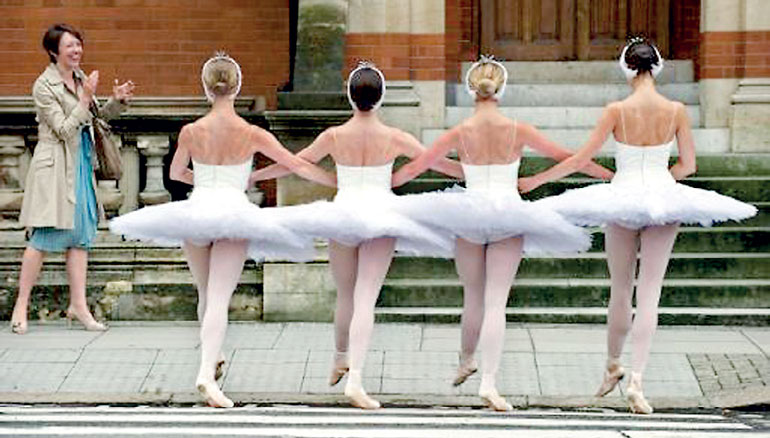Saturday Apr 19, 2025
Saturday Apr 19, 2025
Thursday, 20 July 2017 00:08 - - {{hitsCtrl.values.hits}}
LONDON (Thomson Reuters Foundation): Advertisements which perpetuate gender stereotypes or mock people for not conforming to such norms could be banned under new rules, Britain’s advertising watchdog said on Tuesday.
It said ads that feature stereotypical gender roles or characteristics could have a harmful impact, particularly on children, by limiting aspirations.
Adverts which could fall foul of the new rules, likely to come into force next year, include those which depict families creating a mess while a woman has sole responsibility for cleaning it up, the Advertising Standards Authority (ASA) said.
Also problematic would be ads featuring a man trying and failing to undertake simple parental or household tasks.
Regulators could likewise come down on advertisements that suggest a specific activity is unsuitable for boys because it is associated with girls, or vice-versa.
“Portrayals which reinforce outdated and stereotypical views on gender roles in society can have a harmful impact,” said ASA Chief Executive Guy Parker.

“While advertising is only one factor in a wider debate, tougher advertising standards can play an important role in tackling inequalities to the benefit of individuals, the economy and society as a whole.”
ASA’s call for tougher rules came as it published a major review of gender stereotypes in advertising.
Certain stereotypes can contribute to widespread assumptions about how people should look or behave and these messages can become internalised, the report said.
Such portrayals can limit how people see themselves, how others see them, and the life decisions they take, ASA said.
Young children should be particularly protected from harmful stereotypes as they are more likely to internalise messages they see around them which can in turn limit their potential, it added.
But not all stereotypes will be banned. For example, ASA said it was not calling for a ban on ads depicting a woman cleaning or a man doing DIY.
Advertisements that prompted complaints to ASA last year included a campaign by clothes giant Gap featuring an image of a pre-school boy, labelled “the little scholar”, wearing a T-shirt with Albert Einstein’s face on it, next to a girl wearing sparkly cats ears labelled “the social butterfly”.
The ad said of the boy “your future starts here”, while the girl’s clothes were “the talk of the playground”.
Last month, U.N. Women launched a global “Unstereotype Alliance” to banish gender stereotypes in advertising. Supporters include companies such as Unilever, Google and Facebook.
Discover Kapruka, the leading online shopping platform in Sri Lanka, where you can conveniently send Gifts and Flowers to your loved ones for any event including Valentine ’s Day. Explore a wide range of popular Shopping Categories on Kapruka, including Toys, Groceries, Electronics, Birthday Cakes, Fruits, Chocolates, Flower Bouquets, Clothing, Watches, Lingerie, Gift Sets and Jewellery. Also if you’re interested in selling with Kapruka, Partner Central by Kapruka is the best solution to start with. Moreover, through Kapruka Global Shop, you can also enjoy the convenience of purchasing products from renowned platforms like Amazon and eBay and have them delivered to Sri Lanka.
Discover Kapruka, the leading online shopping platform in Sri Lanka, where you can conveniently send Gifts and Flowers to your loved ones for any event including Valentine ’s Day. Explore a wide range of popular Shopping Categories on Kapruka, including Toys, Groceries, Electronics, Birthday Cakes, Fruits, Chocolates, Flower Bouquets, Clothing, Watches, Lingerie, Gift Sets and Jewellery. Also if you’re interested in selling with Kapruka, Partner Central by Kapruka is the best solution to start with. Moreover, through Kapruka Global Shop, you can also enjoy the convenience of purchasing products from renowned platforms like Amazon and eBay and have them delivered to Sri Lanka.